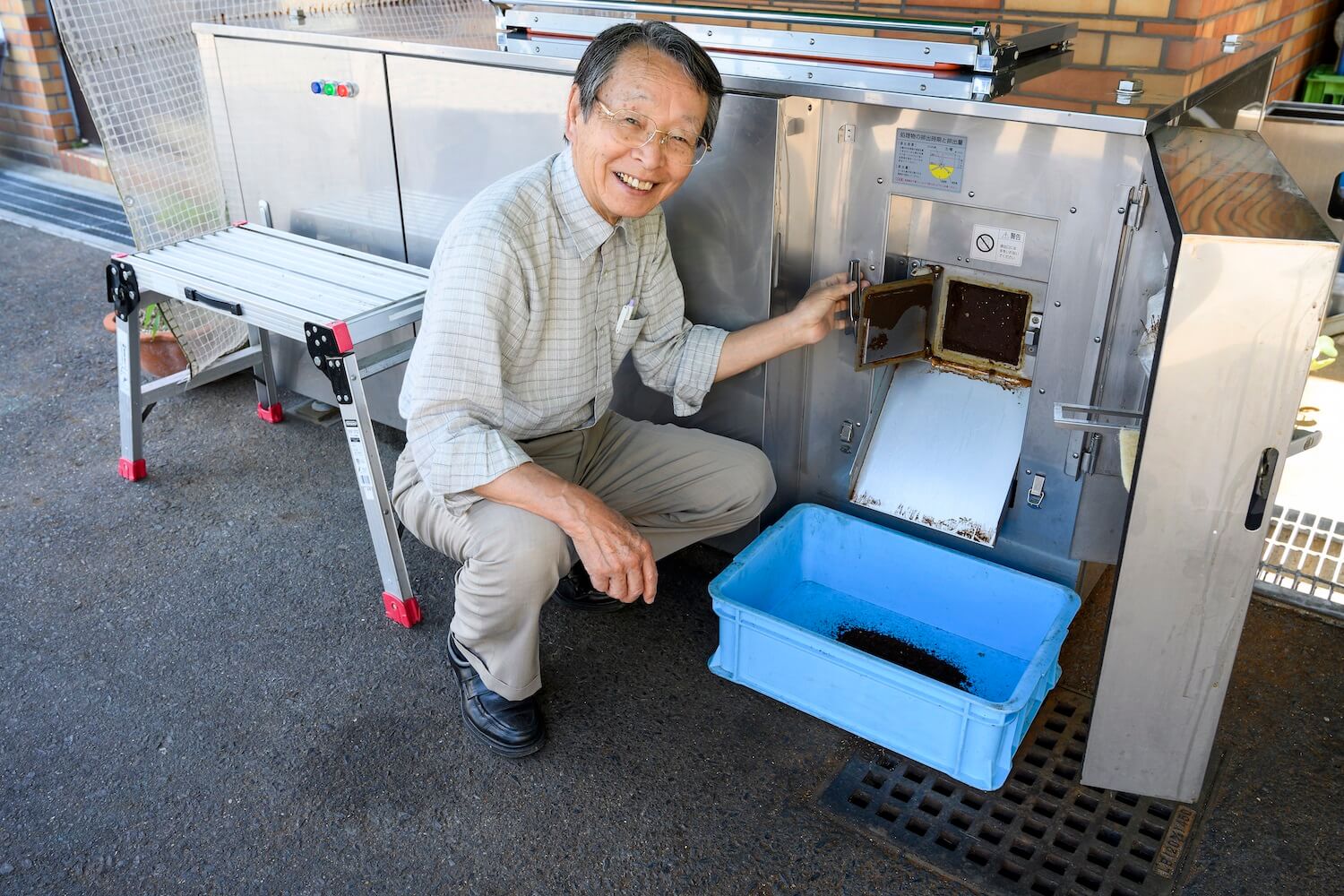
ごみの山を宝の山に… 「食品ロス堆肥」の普及で、社会が潤う未来をつくる
NPO法人日本食品リサイクルネットワーク関西支部|吉田栄治さん

食品ロスや食品廃棄物の削減は、社会全体で取り組むべき課題となっています。GOOD NATURE STATIONでは、施設から出る食品廃棄物や食品ロスを堆肥化して活用するという方法で、生産農家の方々と一緒にエコリサイクルの確立に取り組んでまいります。
そのパートナーは、滋賀県近江八幡市で農業を営む「近江園田ふぁーむ」のみなさんと、NPO法人日本食品リサイクルネットワークの吉田栄治さんです。今回は、私たち事業者と生産農家をつなぐ橋渡し役として活躍する吉田さんの活動をご紹介します。
食品リサイクル法により、「食品ロス堆肥」の活用がスタート
2001年、増え続ける食品廃棄物の発生を抑制し、減量化を図るため、食品リサイクル法が施行されました。この法律の特徴は、単に食品廃棄物の発生や処分量を減らすだけでなく、資源として肥料や飼料に再利用し、リサイクルの推進を目的としている点です。
これにより、年間100トン以上の食品廃棄物を排出する食品関連事業者は、廃棄物の削減とリサイクルに取り組むことが義務づけられたのです。
そうした背景の中、食品廃棄物を堆肥化や飼料化するための取り組みが全国で始まりました。食品メーカーや商業施設、ホテル、社員食堂のある大企業などの事業者が、専用の処理装置を使って一次処理を行い、その生成物を農業や酪農などを営む生産農家が回収し、有機肥料素材や飼料として活用します。
そうしてできた農産物を、今度は生産農家から食品生成物を排出した事業所へと還元。捨てられた食品が再び食材となって生まれ変わります、持続可能な循環型社会を目指す仕組みです。
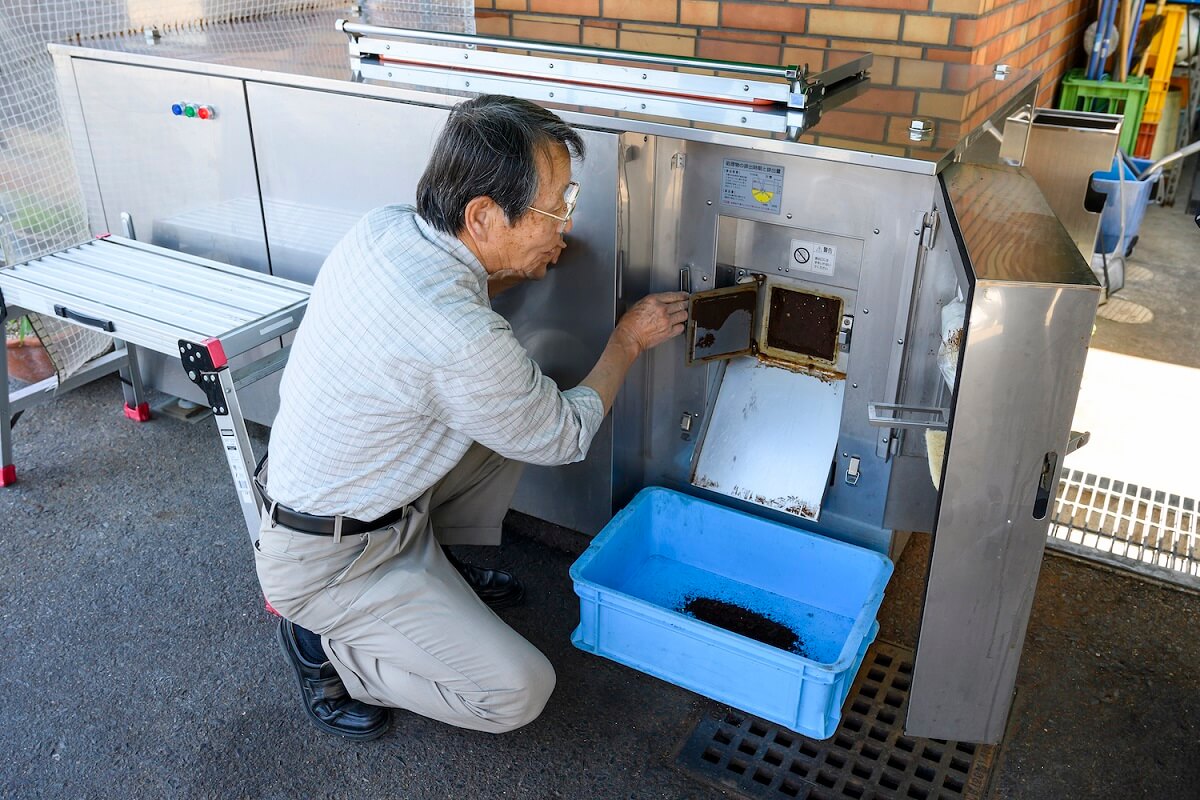
一見、効果的な良いサイクルのように思えますが、始まった当初はなかなか厳しいものでした。リサイクルのためには廃棄物の発生場所での分別が欠かせません。
しかし、事業者がリサイクルに対する理解を示していても、その意識を厨房などで働く従業員ひとりひとりにまで浸透させるのは簡単なことではありません。きちんと分別されず、紙パックやビニールなどが混ざってしまい、肥料や飼料として活用できないケースも散見。
また特例なケースとして農家に届いた一次処理された生成物(堆肥化)に、お茶碗のかけらやスプーンが混じっていたということもありました。
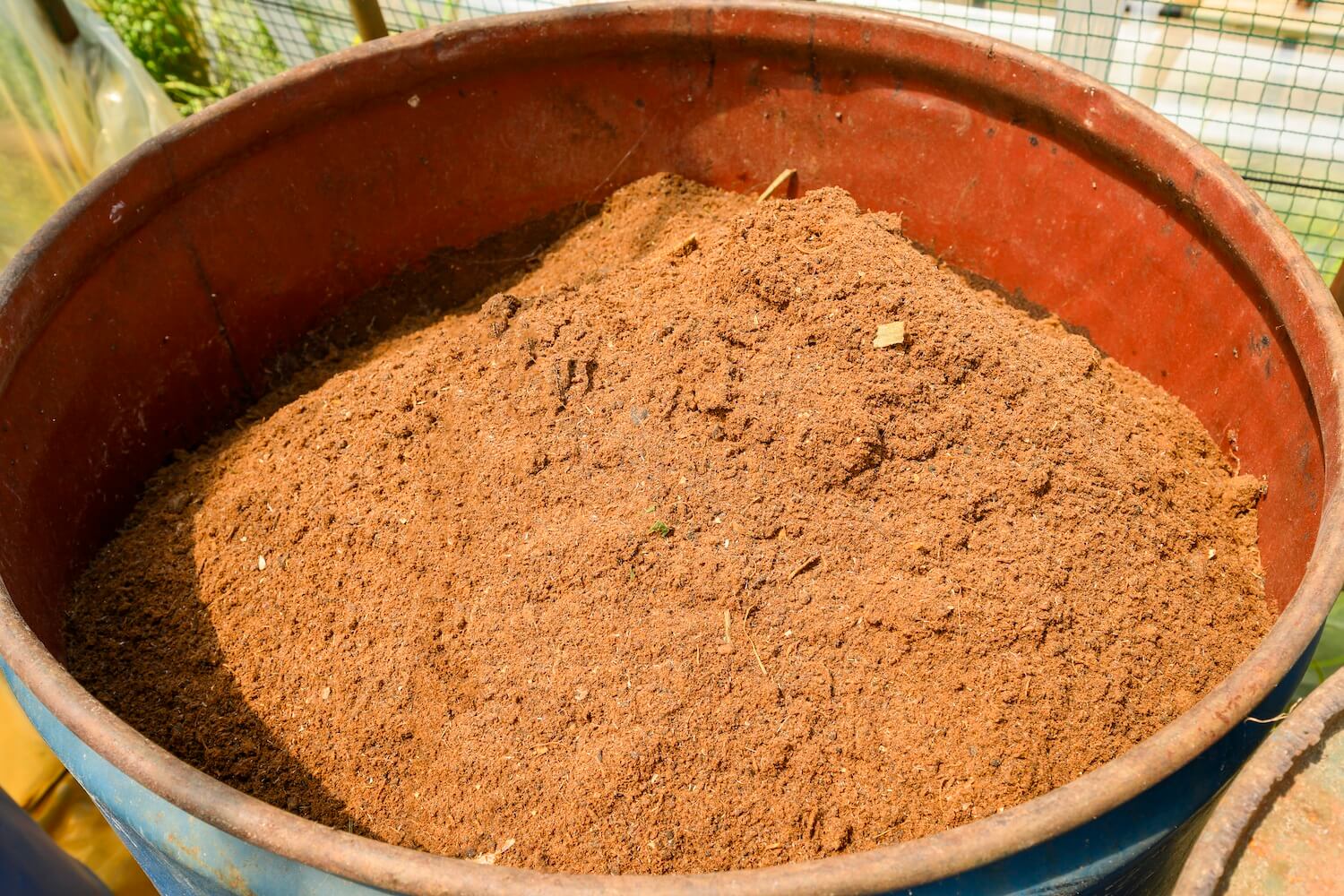
そのようなリサイクルのプロセスにおける問題に対して、事業者と生産農家の仲介役となって解決にあたっているのがNPO法人日本食品リサイクルネットワークです。そのモットーは「大地の恵みは大地に返す…」。
法律の周知や分別の徹底のために尽力するだけでなく、食品リサイクル法が施行される前には、農林水産省からの依頼で食品廃棄物を堆肥化する処理装置の基準づくりにも協力しました。日本食品リサイクルネットワーク関西支部の吉田栄治さんはこのように語ります。
吉田:「異物や不純物が混じると、その生成物(堆肥化)を撒いた田畑では良い土づくりが難しく、農産物づくりに悪影響が出てしまいます。まさしく、混ぜればゴミ、分ければ資源なのです。
排出事業者の厨房を訪ねて、『農地はゴミ捨て場じゃないんです』と何度も分別の必要性を説明しました。とにかく、事業者と生産者のみなさんがより良い関係を築けるように必死でした」
生産者と二人三脚で、循環型農業のサイクルをつくる
吉田さんはこれまで関西地域での循環型農業の普及に取り組んできました。その中で、2004年に出会ったのが、滋賀県認定のエコファーマーとして環境に配慮した農業を続けていた「近江園田ふぁーむ」の園田耕一さんでした。吉田さんから食品ロス堆肥の話を聞いた園田さんは、調理クズや人が食べ残した有機資材の効用を理解し、協力を快諾しました。
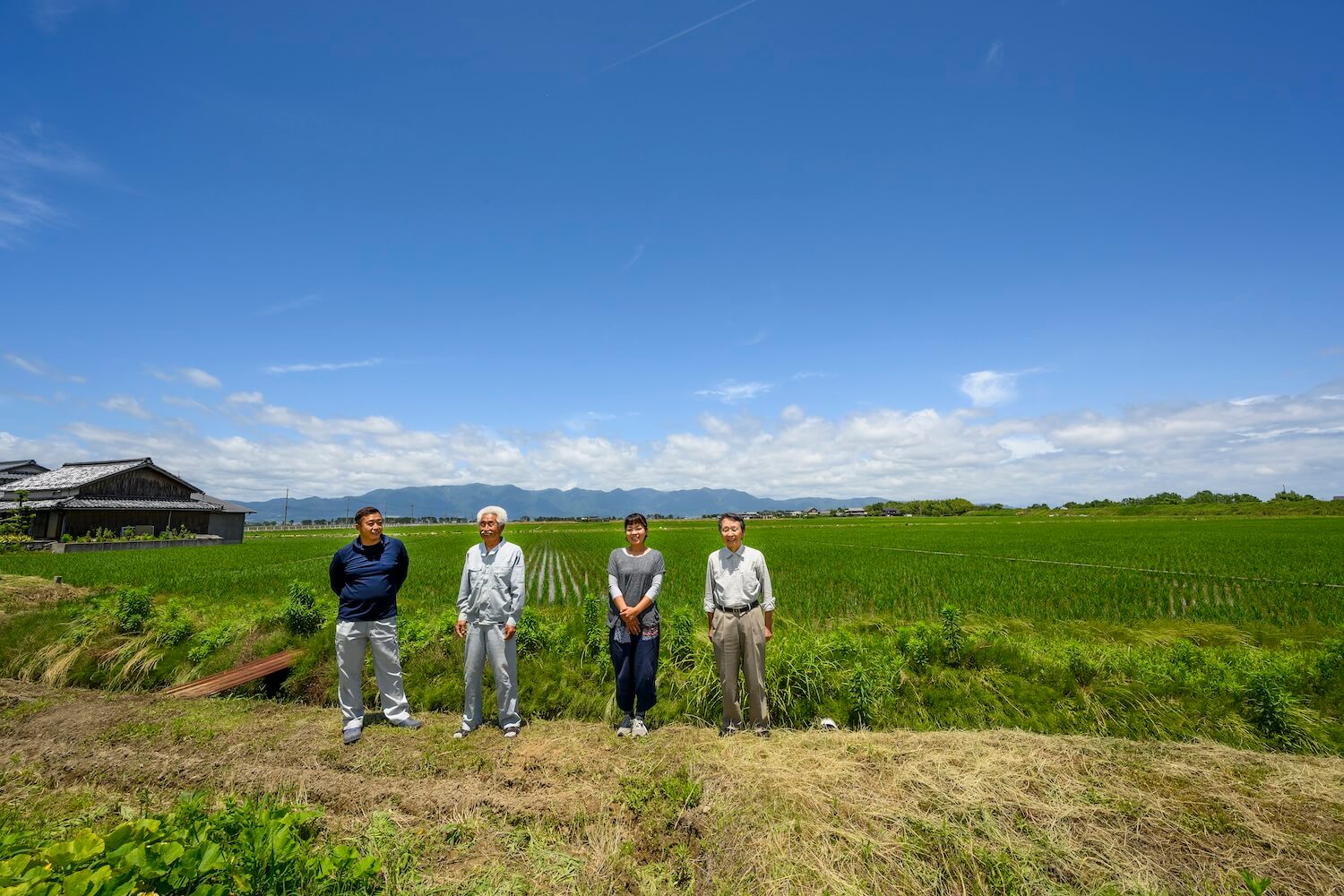
食品ロス堆肥は、排出先である事業所による管理が行き届いていれば、安全性の高いものになります。これは、土作りを大切にしてきた園田さんにとって、安心して使えるものでした。
園田:「それまでまったく知らなかったのですが、環境を大切にする素晴らしい取り組みだと思いました。堆肥の元になる調理くずや食べ残しは非常に安全性が高く、それまで使用していた堆肥とも成分が近い。これなら土づくりのためにもなると思いましたね」
食品ロス堆肥を使った結果、園田さんの田んぼや畑は土壌が豊かになり、今まで以上に美味しい農作物が育つようになりました。現在、近江園田ふぁーむでは滋賀県内の企業・学校・病院・ホテルなど5つの事業者と連携し、食品ロス堆肥によるエコリサイクルを進めています。
GOOD NATURE STATIONでも、吉田さんや園田さんと連携し、食品廃棄物の削減に努めたいと考えています。施設内に設置する一次処理のための装置では、微生物の力を使って発酵・分解が行われ、約24時間かけて堆肥に生まれ変わります。
処理を経た堆肥は臭みがなく、さまざまな食品が凝縮されたような濃厚な香りがします。その堆肥を使って園田さんが育てた作物は、GOOD NATURE STATIONで販売する予定です。私たち自らが実践することで、ごみの減量や食品ロスの問題、循環型エコ農業についてお客さまにも知っていただきたいのです。
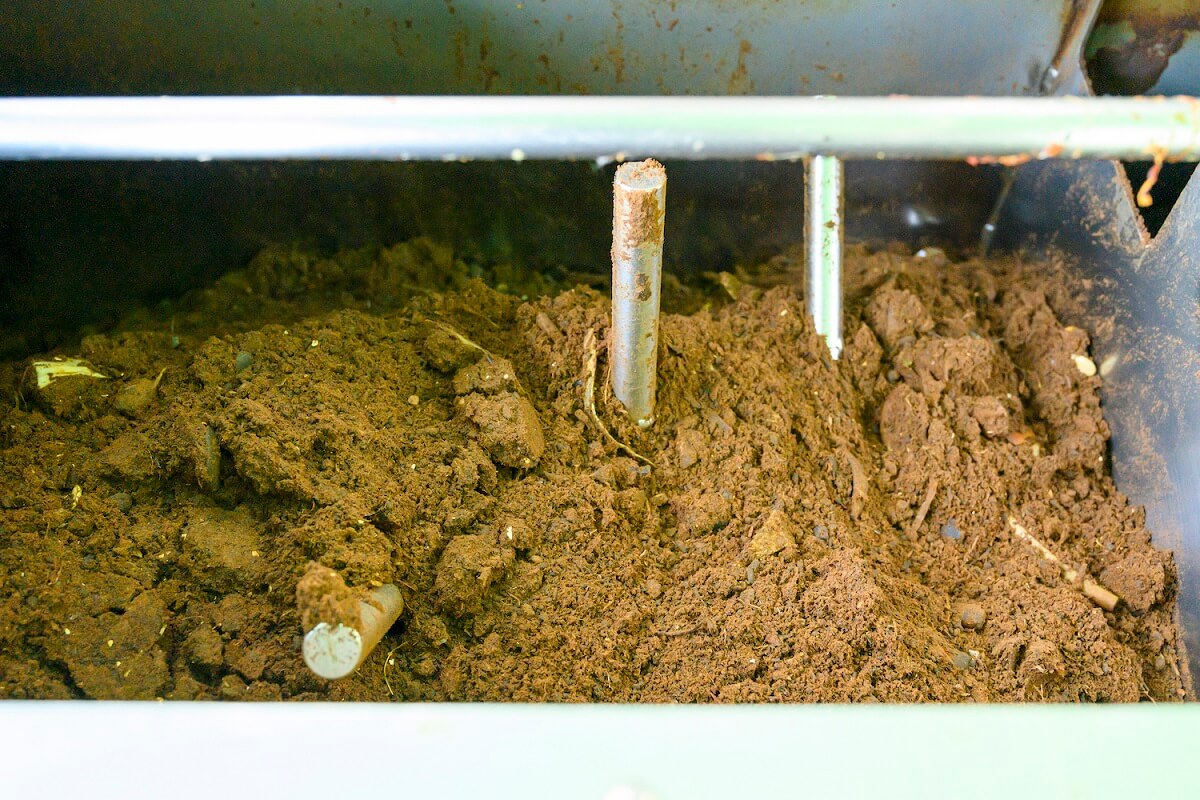
食品ロス堆肥を家庭にも普及させ、循環型社会の輪を広げる
近江園田ふぁーむでは、農地1ヘクタールあたり約1トンの堆肥を必要としています。しかし、提携先から回収できる堆肥の量は年間約20トンと、210ヘクタール以上の農地を持つ園田さんにとってはまだまだ足りていないのが現状です。そうした中で、吉田さんは、事業者だけでなく一般家庭でも食品廃棄物の削減やリサイクルに対する意識を持ってほしいと考えています。
吉田:「現在、日本では1世帯につき年間約250キロ、およそ軽トラック1台分もの食品廃棄物が排出されていると言われています。その多くを占める生ゴミの80%は水分であり、燃えにくいものを化石燃料を使って無理やり焼却して処分しているわけです。
燃やして埋め立てているだけでは、ゴミは減りません。家庭用の処理装置を普及させることができれば、食品廃棄物の量を減らし、リサイクルをもっと進めることができます。そうしてゴミ焼却のコストを削減し、その分を教育や福祉など他の分野に役立ててほしいのです」
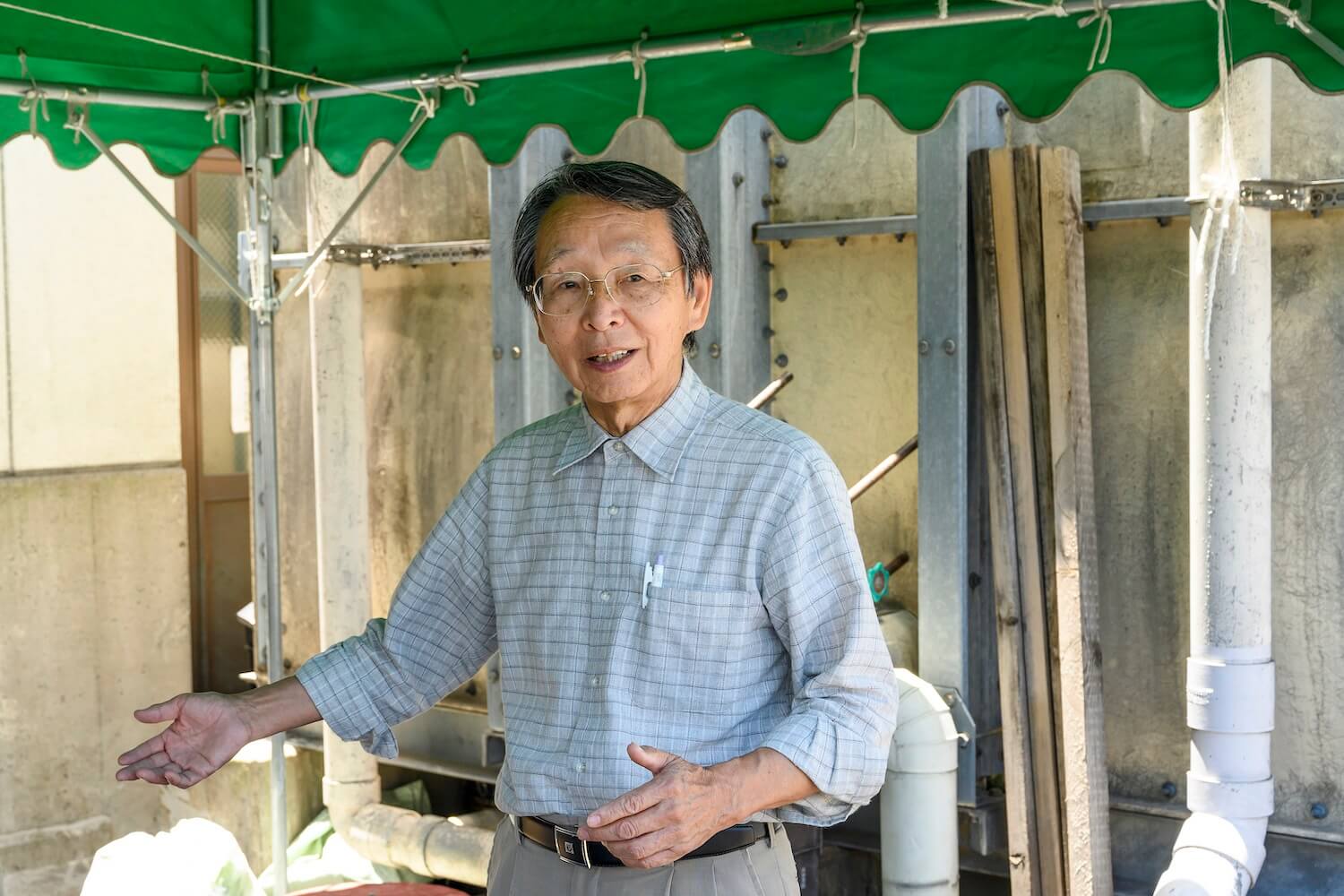
吉田:「食品ロス堆肥の取り組みは、農業だけではなく社会全体が潤うものです。GOOD NATURE STATION のようにたくさんの人が訪れる施設が積極的に取り組んでくださることで、一般の方にもこの取り組みが広まってほしいですね」
GOOD NATURE STATIONでは、食品廃棄物の堆肥化によってゴミの排出量を削減すると同時に、生産者のみなさんと循環型農業のサイクルをつくり上げることで、持続可能な開発目標(SDGs)の達成に向けて取り組んでいきます。
吉田 栄治(よしだ・えいじ)
NPO法人日本食品リサイクルネットワーク副理事。2001年の食品リサイクル法の施行を受け、食品リサイクル機器メーカーなどが中心になって設立した「食品リサイクル機器連絡協議会」に参画。その後、2006年4月に近江八幡市を拠点に関西支部を立ち上げ。生産者とともに「食品ロス堆肥」の取り組みを県内外に広める活動を行っている。


